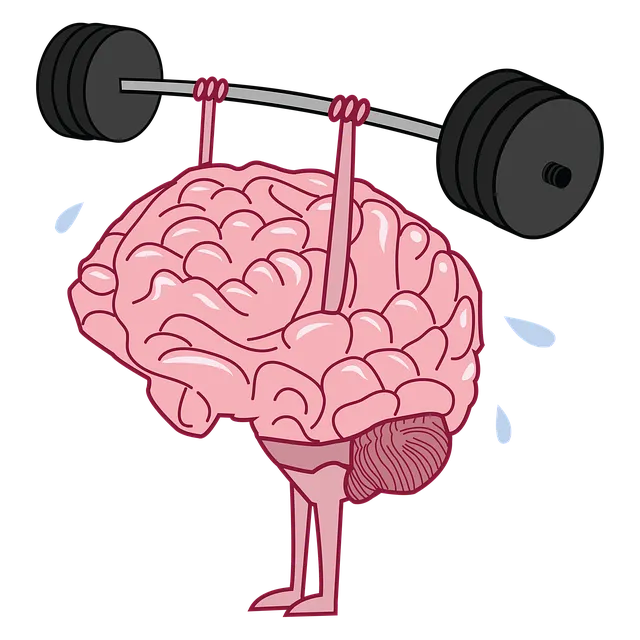Golden Kaiser Permanente's behavioral health services emphasize the interconnectedness of social skills and mental wellness. They address how mental health issues can isolate individuals, but through comprehensive training, people can improve their social abilities and build stronger connections. These services offer a holistic approach with group sessions, workshops, and counseling to enhance self-care, resilience, and mindfulness, ultimately preventing burnout and promoting healing. Their unique Social Skills Training focuses on role-playing, empathy development, and assertiveness to create supportive environments where individuals can thrive.
Social skills training is a powerful tool in managing mental health conditions, addressing a crucial aspect of overall well-being. This article explores the intricate link between social interactions and mental health, highlighting why such training is essential. We delve into Golden Kaiser Permanente Behavioral Health Services, known for its innovative approaches to enhancing social skills among patients. By examining effective strategies, this guide offers insights into improving social functioning through targeted interventions.
- Understanding the Connection Between Social Skills and Mental Health
- Golden Kaiser Permanente Behavioral Health Services: An Overview
- Strategies for Effective Social Skills Training in Mental Health Care
Understanding the Connection Between Social Skills and Mental Health

Social skills are integral to mental wellness, and their development is a critical aspect of Golden Kaiser Permanente behavioral health services. Understanding the connection between these two elements is essential in addressing various mental health conditions. Many individuals struggling with anxiety, depression, or other psychological disorders often experience difficulties in social interactions, leading to feelings of isolation and exacerbating their symptoms.
The link between poor social skills and mental health issues is bidirectional. On one hand, inadequate social connections can contribute to the onset and severity of mental health problems. Conversely, enhancing one’s social abilities through training and support can empower individuals to navigate relationships more effectively, fostering a sense of belonging and improving their overall mental wellness. Positive thinking and burnout prevention strategies for healthcare providers, for instance, often emphasize the importance of strong interpersonal skills in maintaining a healthy work-life balance.
Golden Kaiser Permanente Behavioral Health Services: An Overview

Golden Kaiser Permanente Behavioral Health Services stands as a beacon of hope and support for individuals navigating mental health challenges. This comprehensive program offers a multi-faceted approach to healing, focusing on various aspects of an individual’s well-being. The services are designed to empower patients by enhancing their social skills, fostering inner strength, and promoting self-care strategies that go beyond traditional therapy. Through group sessions, workshops, and personalized counseling, individuals learn effective communication techniques, build resilience against stigma, and develop coping mechanisms tailored to their unique mental health journeys.
With a commitment to holistic care, Golden Kaiser Permanente addresses not just symptoms but the underlying causes of mental illness. Their behavioral health services prioritize burnout prevention by teaching stress management techniques and mindfulness practices that help individuals maintain balance in their daily lives. By nurturing inner strength and reducing the stigma surrounding mental illness, these services aim to create a supportive environment where everyone can heal and thrive.
Strategies for Effective Social Skills Training in Mental Health Care

Social Skills Training is a powerful tool within mental health care, offering tailored strategies to enhance communication and interaction for individuals navigating various conditions. At Golden Kaiser Permanente behavioral health services, professionals employ a multi-faceted approach. This includes role-playing scenarios, group discussions, and practical exercises designed to foster empathy, active listening, and assertiveness. By creating safe, supportive environments, patients can build confidence in their social interactions, improving overall mental wellness.
One effective method is encouraging Positive Thinking through cognitive reframing techniques during training sessions. Additionally, integrating Risk Management Planning for Mental Health Professionals ensures a proactive approach to potential challenges that may arise in social settings. To promote self-reflection and growth, Mental Wellness Journaling Exercises Guidance can be provided post-training, allowing individuals to track their progress and insights gained from the learning experience.
Social skills training plays a pivotal role in enhancing mental health outcomes, especially when tailored to meet the unique needs of individuals with various conditions. As highlighted by Golden Kaiser Permanente behavioral health services, comprehensive programs can significantly improve social functioning and overall well-being. By incorporating evidence-based strategies, mental health professionals can effectively navigate the complex landscape of social interactions, fostering better connections and support systems for their clients. This approach not only complements traditional therapy but also empowers individuals to thrive in a socially rich environment.






